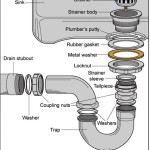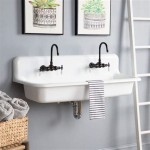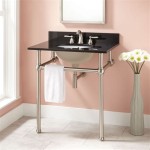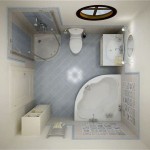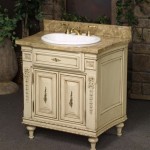Essential Aspects of Sewing Machine Bathroom Sink
Sewing Machine Bathroom Sink, a type of noun, plays a significant role in bathroom functionality and design. Understanding its essential aspects enables you to make informed decisions when selecting, installing, and maintaining this bathroom fixture.
The following article explores the key aspects of Sewing Machine Bathroom Sink, providing valuable insights for homeowners, designers, and contractors.
1. Material and Durability
The material used in the construction of the sink determines its durability, appearance, and ease of maintenance. Common materials include:
- Cast Iron: Known for its durability, cast iron sinks provide a timeless appeal but can be prone to chipping.
- Ceramic: Ceramic sinks are stylish, easy to clean, and resistant to stains, but they can be susceptible to cracking.
- Composite: These sinks combine materials like resin and stone dust, offering durability, resistance to stains and scratches, and a modern aesthetic.
2. Shape and Size
The shape and size of the sink affect its functionality and visual appeal. Popular shapes include rectangular, round, oval, and farmhouse. The sink's size should be proportional to the bathroom space and accommodate your daily needs.
3. Number of Basins
Sewing Machine Bathroom Sinks typically have one or two basins. Single-basin sinks provide a spacious work area, while double-basin sinks offer versatility and convenience for tasks like washing hands and rinsing dishes.
4. Mounting Type
Sewing Machine Bathroom Sinks can be mounted in various ways:
- Undermount: The sink is installed below the countertop, creating a seamless look with the sink rim hidden from view.
- Drop-in: The sink fits into a hole cut into the countertop, providing a more traditional design.
- Vessel: The sink stands independently on the countertop, offering a unique and stylish touch.
5. Faucets and Accessories
The sink is complemented by faucets and accessories that enhance its functionality. Consider the finish and style of the faucet to match the sink's design. Accessories like soap dispensers and towel bars complete the sink's functionality.
6. Maintenance and Cleaning
Proper maintenance ensures the longevity and aesthetic appeal of the sink. Regular cleaning with appropriate cleaning agents and avoiding harsh chemicals can prevent stains and damage. Depending on the material, specialized care may be required.
Conclusion
Understanding the essential aspects of Sewing Machine Bathroom Sink empowers individuals to make informed choices that meet their functional and aesthetic needs. By considering factors such as material, shape, size, mounting type, faucets, accessories, and maintenance, you can select and maintain a sink that adds value and functionality to your bathroom.

Singer Sewing Machine Repurposed Into A Bathroom Sink Funcycled

Raiders Of Dad S Work Hotham Distillery

Sewing Machine Sink Washing Table

Singer Sewing Machine Bathroom Vanity Rustic Bathrooms Designs Interior

Pin Em Diy Or Repurposed

Bathroom Ideas On A Budget Low Cost Makeovers Basin

Thrifty Woman Makes Stunning Sink Using An Old Sewing Table Metro News

Update Vanity Is Installed Lumberjocks Woodworking Forum

1894 Reborn Singer Sewing Table Retrofit Sink Victorian Bathroom New York By Erin Difazio Houzz

Crush Of The Week Turkish Towel Company
Related Posts

